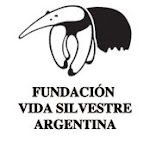During a recent trip abroad, to kill the long hours of flight time, I bought a Scientific American -something I have done for the last 15 years, I always buy a Sci Am. when I fly. And besides a very intersting though probably far fetched article on the origin of our universe as the outcome of a stellar implosion in a four dimensional universe that lies beyond ours... I read an article on epigenetics.
I had never imagined that stress and chemicals can alter the switching-on and off of our genes without modifying our genetic code. The article proved that it can happen and in consequence, be a powerfull force driving evolution, one that is not recorded in our DNA.
Among the factors mentiones are, of course, the harmful chemicals and pesticides (DDT for instance) generated by our modern society. Pollutants cause mice to pass on disorders to their descent, not only their direct offspring but also to their great-great-grand-pups. And this without any trace in DNA changes.
Hunger and other causes of stress also alter the actions of genes. And this is intersting, because environmental factors, naturally occuring ones could impact on the inhibition or activation of our genes and be driving forces behind the evolution of species. The article summarizes this as follows:
If the environment can sometimes directly produce longterm, transgenerational changes in gene activity without first altering the DNA coding sequence, then the classical view of evolution ... wil have to be expanded.
... Epigenetic changes appear to occur 1,000 times more frequently [than advantageous genetic mutations]... Natural selection would then pick the best adapted among them to thrive and carry on - genome, epigenome, and all.
I am still pondering over this thought, because it does have direct impact in Human evolution: starving and stressed humans would have been very common during most of mankind's history (beasts and natural events causing famine, illness and death). And this would have prompted subgroups a and b of population A to survive while subroups c to n died out. All of them had the same DNA but a and b had some genes activated which gave them the edge and they survived...
How does this impact on the "molecular clock"?
Further Reading
A New Kind of Inheritance, Michael K. Skinner, pp. 45-51. Scientific American, Aug. 2014 vol 311, No. 2.
Patagonian Monsters - Cryptozoology, Myths & legends in Patagonia Copyright 2009-2014 by Austin Whittall ©
















No comments:
Post a Comment